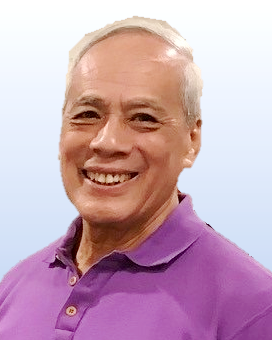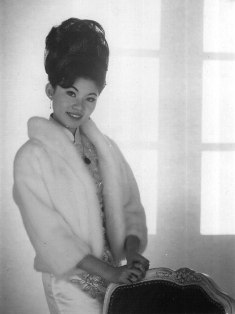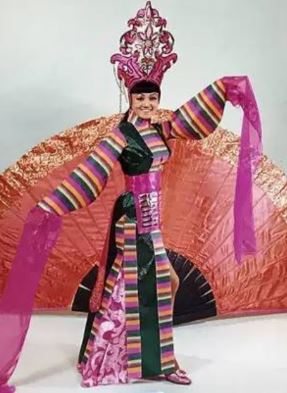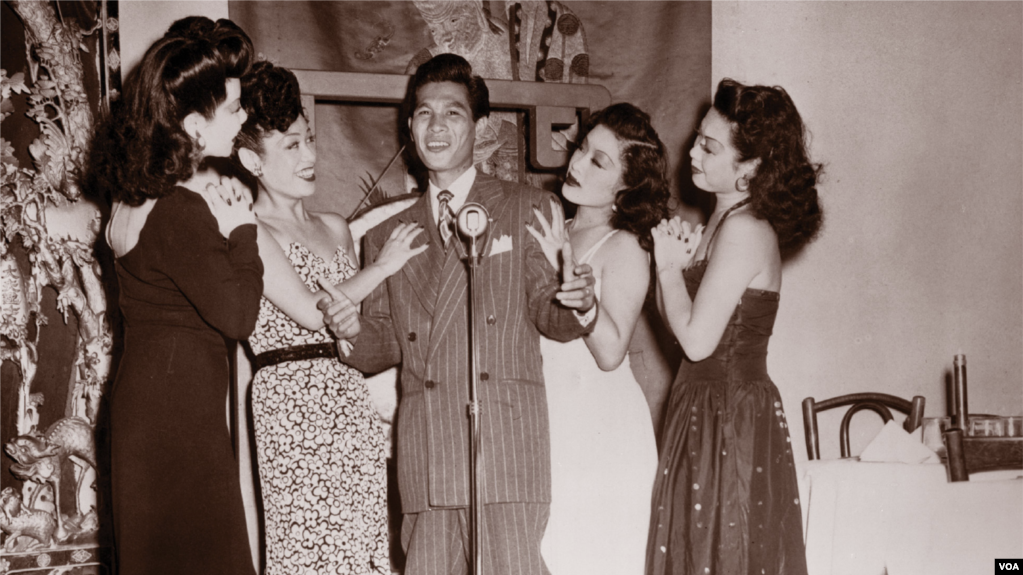Panelists:
- Coby Yee, dancer, and owner of the Forbidden City
- Calvin Fong, son of Fong Wan, owner of Club Shanghai
- Cynthia Yee, started dancing at age 17 in the mid-60’s all-Asian floorshow at Andy Wong’s Chinese Skyroom
Session Abstract
This webinar explores a little known, but exciting topic, in Chinese-American history: Chinese-American nightclubs. In particular, the presentation will focus on the nightclubs owned by a well-known herbalist, Fong Wan of Oakland, and how he eventually turned a bankrupt restaurant into a first-class nightclub. Many of the performers (singers, dancers, magicians, acrobats, comedians, etc) were Chinese with headliner names; like, the “Chinese Frank Sinatra,” or the “Chinese Ginger Rogers.” Many performers were 2nd generation Asians coming out of the Great Depression and who loved entertaining but were shut out from performing live on American stage or in the movies. The Chinese nightclubs offered a venue for them to show their many talents and opened opportunities that they could not realize otherwise. The clubs became extremely popular during the 1940s-early 1960s and were places to see and be seen by the Hollywood elite.
About the Speaker

Calvin was born in Oakland near Chinatown. In the 1940s, his mother worked as a part-time, evening hostess at the Oakland nightclub. She didn’t want to leave the young children (including me) at home, fending for themselves; so, she brought them to the club. The kids were told to sit way in the back or sit upstairs in the balcony—quietly. We watched the shows, drinking cherry cokes, and were fascinated by the variety and talent of the performers. We were especially mesmerized by the magicians and acrobats. In-between shows, a few of the performers would occasionally “babysit” us and chat. One of the magicians even showed us a few, simple magic tricks (that I have now completely forgotten). In the early 1950s, our parents would sometimes take us to the Club Shanghai in San Francisco Chinatown on Friday nights. My father would be conducting business and my mother would chat with the employees/friends in the back room or kitchen. The only time the kids were allowed in (i.e., forced into) the kitchen was when the “exotic” dancers came on the stage…. We met many of the performers but were too young to really appreciate most of them.
Panelist: Cynthia Yee

Miss Chinatown 1967
In the mid-1960s, Dorothy Toy was producing an all-Asian floorshow at Andy Wong’s Chinese Skyroom, one of the most popular nightclubs in San Francisco’s Chinatown. Dorothy was in need of a substitute dancer and called Cynthia, who was only seventeen at the time. With her parents’ permission, Cynthia went on stage and began her professional career. She recalled later, “In the beginning of course everybody always said, ‘Why do you let your daughter be in show business?’ and Dorothy told my mom that she would take care of me, and she did. Because I was in Dorothy Toy’s show and my mother knew Dorothy as a personal friend, it was fine.” In 1967, Cynthia won the prestigious Miss Chinatown crown, performing a dance choreographed by Dorothy Toy.
Cynthia stayed in touch with many of the nightclub dancers through the years and she continued to dance for her own health and enjoyment. In the 1990s, she was called upon to help support fundraising for the Chinese Hospital in San Francisco. She called her old friends from the nightclubs and founded the Grant Avenue Follies, a troupe that revives the golden age of Chinese nightclubs and supports charitable organizations throughout the city. In 2005, because of the community work done by the Grant Avenue Follies, Cynthia received the Jefferson Award, a prestigious national recognition system honoring community and public service in America. She also performs in a Chinese-themed magic act with the illusionist Tamaka and is the owner of San Francisco Chinatown Ghost tours, a historical walking tour through the alleyways of Chinatown.
Panelist: Coby Yee


Known as “China’s Most Daring Dancing Doll”, Coby Yee began dancing in the 1940’s and soon became a mainstay in Asian nightclubs, particularly Charlie Low’s Forbidden City in San Francisco. She performed all over the country through the 1950’s and 1960’s, eventually buying Forbidden City in 1962 and running it until it closed in 1970. Now 94 years old, she was just awarded the 2020 Living Legend Award ,

Ron, will an Evite be sent out for this webinar (hope I didn’t miss it) or should we take the initiative of contacting Gail to sign up? Thanks!
I’m looking forward to this as my paternal grandaunt Minnie Louie Low was married to Charlie Low before her untimely early death. I’ve never explored this connection but would be interested in learning more about him and the nightclubs he and others made famous.
Hi Marsia
Like you, we are looking forward to a fun session with Chinatown night clubs. It is amazing from the feedback so far that so many have family connections that bring this topic so close to home. We will be sending out save the date notices and a Zoom registration link. So stay tuned, and put your dancing shoes on!
I’ll ask Gail for an invite. The mother of my friend, Ghary Won, worked at Charlie Low’s Forbidden City. I tried to encourage him to read Lisa See’s novel on the Forbidden City. Ghary’s mom and my mom same from the same town of Kow Kong town, Namhoi District (the town of my grandfather that you did research). Gary went with me during my Roots Trip as he was a Roots Alumni if you didn’t know him. Our moms, 2nd generation ABC’s, married their Honolulu-born Chinese-American husbands who attended the same private high school. Now, that your paternal grandaunt was also from the club, I would love to learn more. I asked Ghary about his mom: the same questions that came up in Lisa See’s book: how did Chinese-American women view themselves in a time where there were no acting or dancing prospects for Chinese-Americans and what were their relationships with their parents and peers. The good news for Ghary’s mom is that she found a great husband when Gary’s dad, a traveling insurance agent, visited Forbidden City. (My mom met my dad at a dance held at the L.A. Kow Kong Association). Lisa See’s book explores the soci-economic dynamics of being a gifted entertainer with no outlook for employment during the same time that many second generation Chinese-American professionals could not find work. In the book, one of the main characters ditches being a S.F. Chinese Telephone Operators in favor of a more high paying and more exciting job as performing dancer/singer at the Forbidden City. (My mom’s grandmother and great grandmother’s were telephone operators). I’m very interested in symbols of self-empowerment and self-sufficiency which is exemplified in Chinese-American genealogy — Chinese-Americans helping other Chinese-Americans in finding their past, legacy and future. This presentation is part of this spirit. I’ll send an email to Gail. Thanks for the note. I would love to learn more about Forbidden City and hope that you gain insight about your paternal grandaunt Minnie Louie Low.
hello Ron, please send me a zoom registration link to the night club seminars on 7-15.
Thank you for keeping the glamorous history of Chinese Night clubs alive. Looking forward to your presentations!
Hi Bryon, we are working as we speak on a Zoom registration email so folks can sign up. This will be a landmark session, as we the 33 year old Chinese Historical and Cultural Project (www.chcp.org) has become our technology sponsor, supporting us with Zoom expertise, and their expanded webinar licence. As a result, we will probably have yet ANOTHER record breaking attendance as we will have both CHCP and BACGGs members online. The best is yet to come! Thanks for your support.
Ron
There is so much rich cultural history represented by these early Chinese night clubs! Thank you for putting on this webinar!
Make sure to sign in at 1:15 or after for our “Cocktail Lounge” just prior to the webinar. You’ll hear the best of big band and see a cavalcade of Chinese American night club stars!
\ron
I am looking forward to this webinar. Will you be sending out a link or is it the same one as this one? Gloria
Hi Gloria, we will be sending out a new link. We just had a webinar planning meeting today, and I think a good thing just got better in the new webinar format we discussed.
BACGG with be recognizing CHCP’s http://chcp.org/ in this session, as they are providing the technical support and Zoom licence as we have outgrown the BACGG licence! CHCPs Executive Director will say a few words to introduce his group, who will be participating in our webinar.
Don’t forget to get on at 1:15 – 1:30 as our “cocktail lounge” video will be showcasing Chinese American entertainers, and have some video of a Chinatown nightclub, plus the story of the “Chinese Ginger Rodgers”, Dorothy Toy … video courtesy of Rick Quan. This session is going to be fun!
The best is yet to come. Stay tuned.
Hi,
Will there be a recording available?
Hi Winnie
Yes, as in our previous webinar, our plan is to have a:
1. Slide PDF
2. Audio podcast
3. Video seminar
4. Comments section in the post where additional questions may be answered
Ron Chan = you are the BEST at connecting us all to more Chinese American history. From Auntie Gerrye’s viewpoint who took you to Disneyland when you were a scrawny 8 year old, you have turned into our greatest entrepreneur of promoting Chinese Americans who are long been unsung heroes of our history. Happy to have my Chinese Historical and Cultural Project (CHCP) join you on your Webinar projects to spread the word of our very proud historical relevance to America.
Be sure to send your link early so I can promote it on dingdingrv.com to our vast audience of Chinese American viewers.
Right on, Ron!!!!
gerrye wong
Just as it takes a village to raise a small child, many hands have been integral supporting the night club webinar. I am fortunate to work with great teams, which have great talent. That includes the Webinar Task Force staffed by members from both CHCP and BACGG. The BACGG Planning Committee has pitched in with their usual (and never taken for granted) 1001%. BACGG, I like to believe is long on talent, we are a small group short of funds and bandwidth. CHCP becoming our “dai gaw”, has allowed us to scale this event three to four times what we could have done alone. So this is the power of teamwork. Between our working committee’s. Between organizations. Every organization is only as good as the people who run it. Let your voice be heard if you want to help. BACGG needs part time web and book keeping Contact me, bacgg.ron@gmail.com. Ron, Executive Director, BACGG